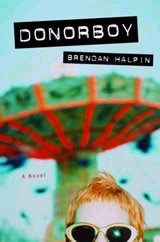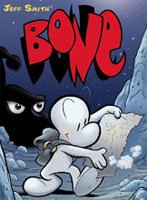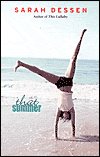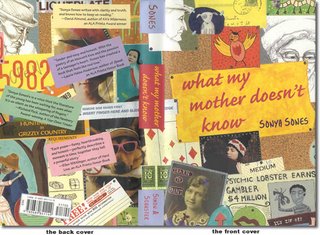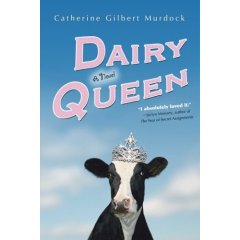
I have mixed feelings about
Our Secret, Siri Aang by Cristina Kessler. It isn't something I would usually read, nor is it something I'm likely to buy for our library. Our students don't seem to be much interested in this sort of "multi-cultural" literature. And "multi-cultural" was the buzz word in education when I was in college; so much multiculturalism was shoved at us that most of us became quite tired of it. I do enjoy reading about other cultures, but stories such as this one, set in Africa among the Maasai, don't usually spark my interest.
However, it's on the required reading list for my class, so, good student that I am, I read it. The book is the story of Namelok, a Maasai girl whose family has been forced to relocate for better living conditions. "Better" is questionable, however, since their new home is much closer to civilization, and the difficulties that accompany modern life. Namelok's father is a traditionalist, and he is scornful of the new ways that are infiltrating Maasai life.
With her father so unhappy and things tense at home, Namelok finds comfort in her time alone. While gathering wood, she comes upon a black rhino giving birth. Having witnessed the birth and gained the mother rhino's trust, the rhinos become Namelok's second family. Her time with the rhinos and meeting the local school teacher prompt Namelok to begin questioning the old ways and wondering if there might be a life for her outside the traditional Maasai ways. But the new ways that threaten the Maasai also threaten the wildlife of the bush, and Namelok may not be able to keep the rhinos or her Maasai family safe from harm.
The first two thirds of the book were slow for me, although those who are interested in such stories will probably find them interesting and well written. I did become interested in the book when I picked it up, but found it very easy to lay it down and not pick it up (that would be why it took me almost a week to read it). The last third of the book, after tragedy strikes Namelok and she is forced into the bush on her own, was much more interesting, and I read that part of the book in one day.
So, this one is worth a read, and if you are looking for fiction on Africa or an very accurate portrayal of Maasai life & customs, this is a great book. However, I still believe my students would not read this one on their own; if I purchased it for our library, it would languish on the shelves until it made its way onto a reading list for a class.
Aside from the story and the question of its popularity with teens, I also have concerns about the issue of female genital mutilation (FGM) which is discussed but not explained in the book. Namelok is forced to prepare for her
emuratare or female circumcision, a very important coming-of-age ritual among the Maasai. While FGM is disappearing in much of Africa, it is believed that 100% of Maasai girls are still circumcised. Many younger women and girls question the practice, but pressure from Maasai society is so great that they submit (or allow their daughters to submit) to the surgery anyway.
While the
emuratare ceremony is mentioned quite frequently in
Our Secret, the details of the operation are not covered, and FGM as a practice is not directly discussed. It is true that Namelok, raised as a traditional Maasai, would perhaps not be aware of all the issues surrounding FGM in a global context, and therefore a discussion of the practice as an act against women has little place in the actual story. However, I believe the issue should be thoroughly discussed and explained in an afterword or special note by the author so that young Western readers are introduced to and informed about the controversial practice. Perhaps Kessler glosses over the topic out of respect for the Maasai and their tenacious culture, but I believe she does a disservice to Namelok and to her readers by not providing accurate information about a controversial cultural practice. Kessler presents many of the Maasai reasons for continuing the practice, but her omission of the entire truth behind the ritual makes this an unbalanced and therefore inaccurate representation of an important social practice.
For more information about the practice of female circumcision among the Maasai, go to:
http://www.irinnews.org/webspecials/FGM/45986.aspKessler, Cristina. Our Secret, Siri Aang. Philomel Books: New York, 2004. ISBN 0399239855 $16.99.What I'm Reading: Haven't decided yet. Maybe some of those comics...
On my bookshelf: Kiki Strikes (an advanced reader's copy),
Under the Persimmon Tree &
Born Confused (for class)
